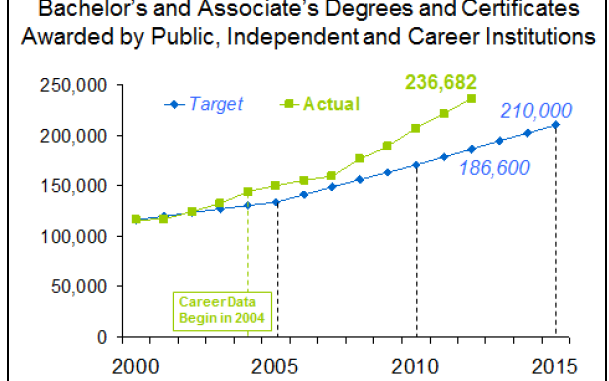
By Alex Gonzalez
The recent event to revisit the in-state tuition bill in Texas has turned into a nasty fight over who will be the toughest Republican Lt. Governor in Texas. The suggestions to revamp the bill, or maybe even “defund” it has brought unwanted attention to the issue, that may hurt the Republican party with Latinos. Texas Sen. Dan Patrick was the first Lt. Governor Candidate who raised the issue by accusing Com. Jerry Patterson Lt. Gov. David Dewhurst of supporting this bill. But it appears that Patrick is now resorting to same tactics used by Mitt Romney who accused Rick Perry of creating a magnate for “Illegals” in Texas even though Romney had previously supported an Immigration bill.
In 2012 Patrick strongly defended the in-state tuition against Ted Cruz, during an interview on Patrick’s own Radio show. Also, in the 2011-12 Texas Legislative Session, Texas had one of the most conservative Republican Sessions, yet nobody in the Legislature made an issue about the in-state tuition bill. Furthermore, for the 2013-14 Texas Legislative Session, this issue was never controversial, even though Dan Patrick was appointed Chairman of the Education Committee in the Texas Senate. Therefore, it appears that Patrick is now against a bill he supported and defended–a la Romney. But the fact is this is a foolish political game–especially with Latinos in Texas–if all Republican candidates opt to keep attacking each other on the issue they will certainly lose the Latino support and possibly the vote. These candidates should be focusing on the conservative economic merits of the bill.
Moreover, this foolish red meat rhetoric–tough on immigration–on the in-state tuition bill defies the real Republican economic interests of Texan, or the “Master Plan” for higher education—the so-called Closing the Gap–by the Texas Higher education Coordinating Board, which seeks to create an educated labor force for the future of Texas economy. According to the Texas Higher education plan:
Statewide Goal for Success: By 2015, award 210,000 undergraduate degrees,certificates and other identifiable student successes from high quality programs. The 2015 goal requires awarding 93, 765 more bachelor’s and associate’s degrees and certificates (BACs) than in 2000.Texas has surpassed the 2015 success goal: public, independent, and career institutions awarded 236,682 BACs in FY 2012
 Also, the In-state tuition bill, the Texas Dream Act, was passed with bipartisan support in 2001 and was signed by Gov. Rick Perry, both in 2001 and again in 2005. And In 2012, Rick Perry defended this bill; he told those who criticized him for supporting the bill that it was about creating high-income earners and tax payers. Thus, this was a Republican bill, passed by Republican legislature, and signed by Republican governor with the intention of meeting the needs of the Texas Master Plan for Higher Education.
Also, the In-state tuition bill, the Texas Dream Act, was passed with bipartisan support in 2001 and was signed by Gov. Rick Perry, both in 2001 and again in 2005. And In 2012, Rick Perry defended this bill; he told those who criticized him for supporting the bill that it was about creating high-income earners and tax payers. Thus, this was a Republican bill, passed by Republican legislature, and signed by Republican governor with the intention of meeting the needs of the Texas Master Plan for Higher Education.
In the past, opponents of the in-state tuition argued that there was no point in educating young people who were here illegally since they will not able to find jobs after they graduate from college. But this argument is now moot since this group of students have gained temporally legal status under DACA, or Deferred Action for Childhood Arrivals, and can now have legal status and can work after they graduate from college. Consequently, this a real tool to build the Texas economy and the state labor pool.
The Department of Education reports show that students with a college degree can earn over a million more in their lifetime than those with no college degree. According to the U.S. Census Bureau, the earnings of an American worker increases with the educational level. The higher the formal education, the higher the income earned and the higher the level of money paid into the national coffers in the form of taxes. People who attend some college (but do not earn a degree) might expect work-life earnings of about $1.5 million. This is slightly more for people with associate degrees, with earnings at $1.6 million over the duration of their life. Over a work-life, individuals who have a bachelor’s degree will earn on average $2.1 million — about one third more than workers who did not finish college, and nearly twice as much as workers with only a high school diploma.
Therefore, this bill should not be an issue for any conservative–candidate or elected official–in Texas who wants to argue that this is a conservative Republican bill designed to meet the Demands of the Texas’ Master Plan for Higher education to supply an educated labor force. Which is why nobody wanted not repeal this bill in the last two legislative sessions when Republicans could have made any changes, if they believed it was necessary. These lawmakers know that this is a good legislation for the state and Latinos.
Moreover, from 2000 to 2010, Latinos made up two-thirds of the state’s growth, which is comprised of a youthful population. Hispanics have now surpassed non-Hispanic whites in school enrollment. In fact, Hispanics were the largest group to take the SAT test this year. Which means Hispanic numbers will simply increase with time in colleges across Texas. Consequently, this is a bill that is good for Latino students, good for Texas and good for Republicans who want to woo Latinos into the party.
This bill could be a good selling point for Republicans with Latinos, if only they wanted to talk about it rather than spend their time pandering to the base who does not want to talk about education or infrastructure policies. If Dan Patrick wants to act like Mitt Romney and flip-flop on a bill that he used to support for pure Primary result and for political reason, he should do so at his own risk. He should not, however, use this issue to create a bigger gap between the Republican Party and Latinos in Texas.
 Alex Gonzalez is a political Analyst and Political Director for Latinos Ready To Vote! comments to [email protected]
Alex Gonzalez is a political Analyst and Political Director for Latinos Ready To Vote! comments to [email protected]



